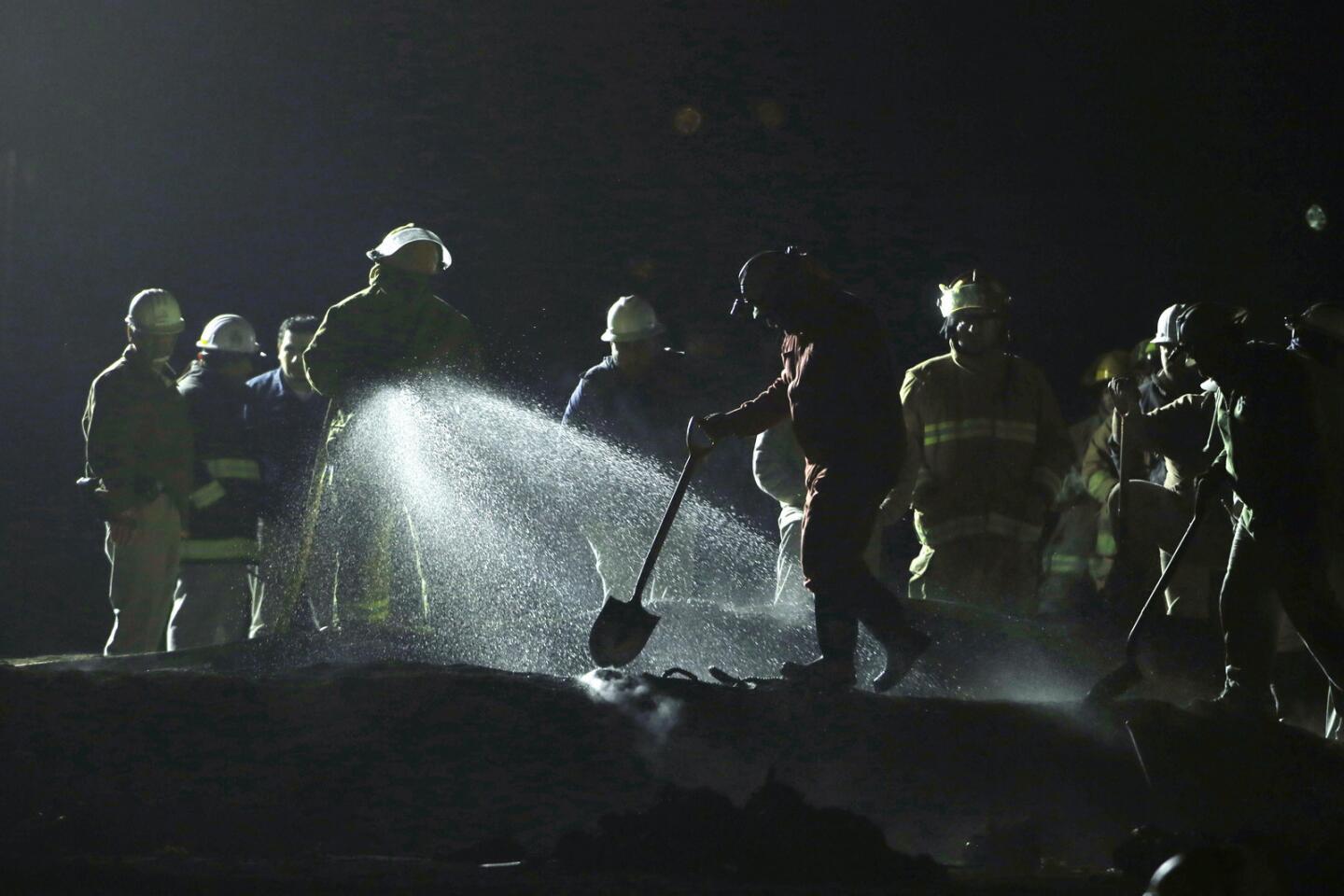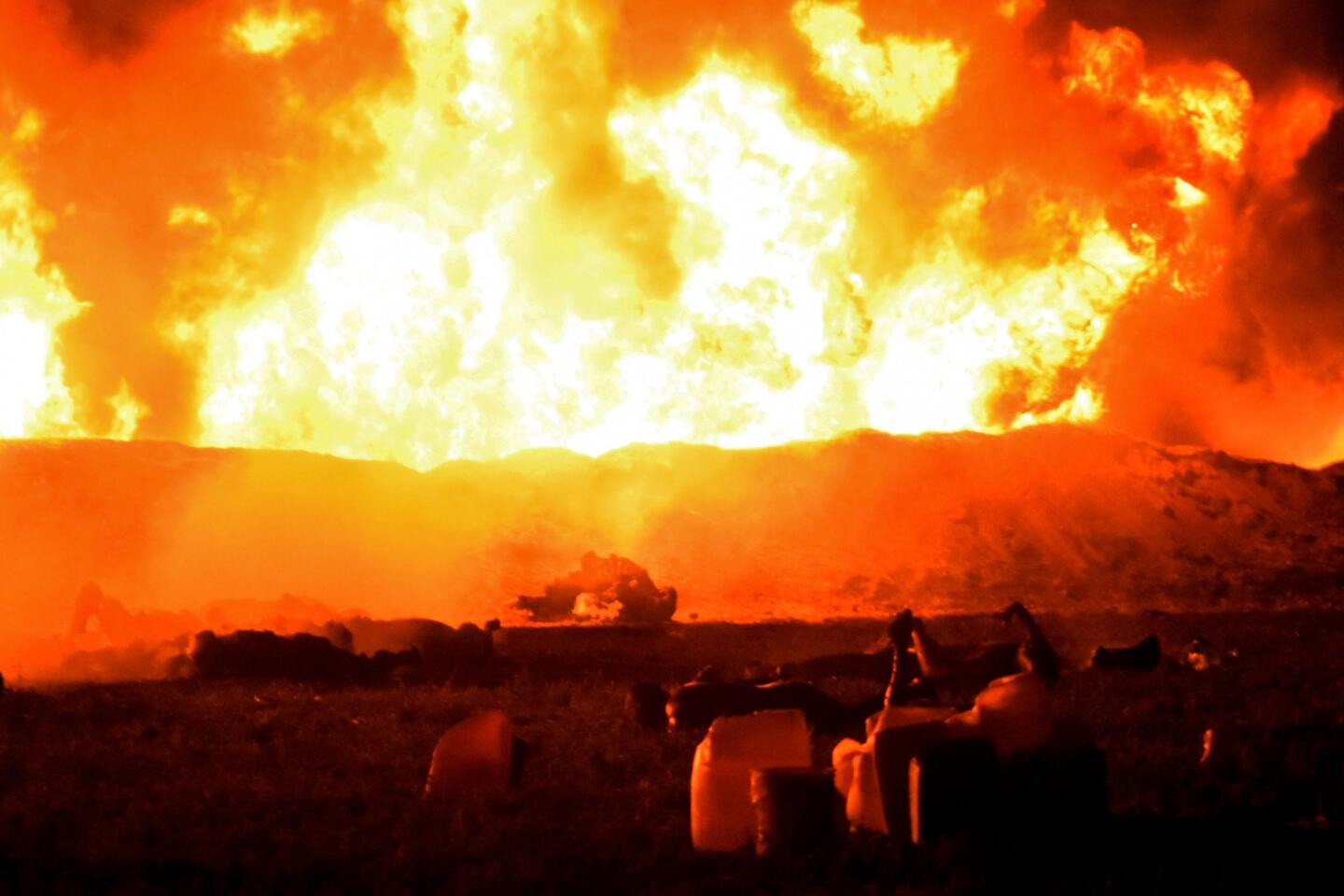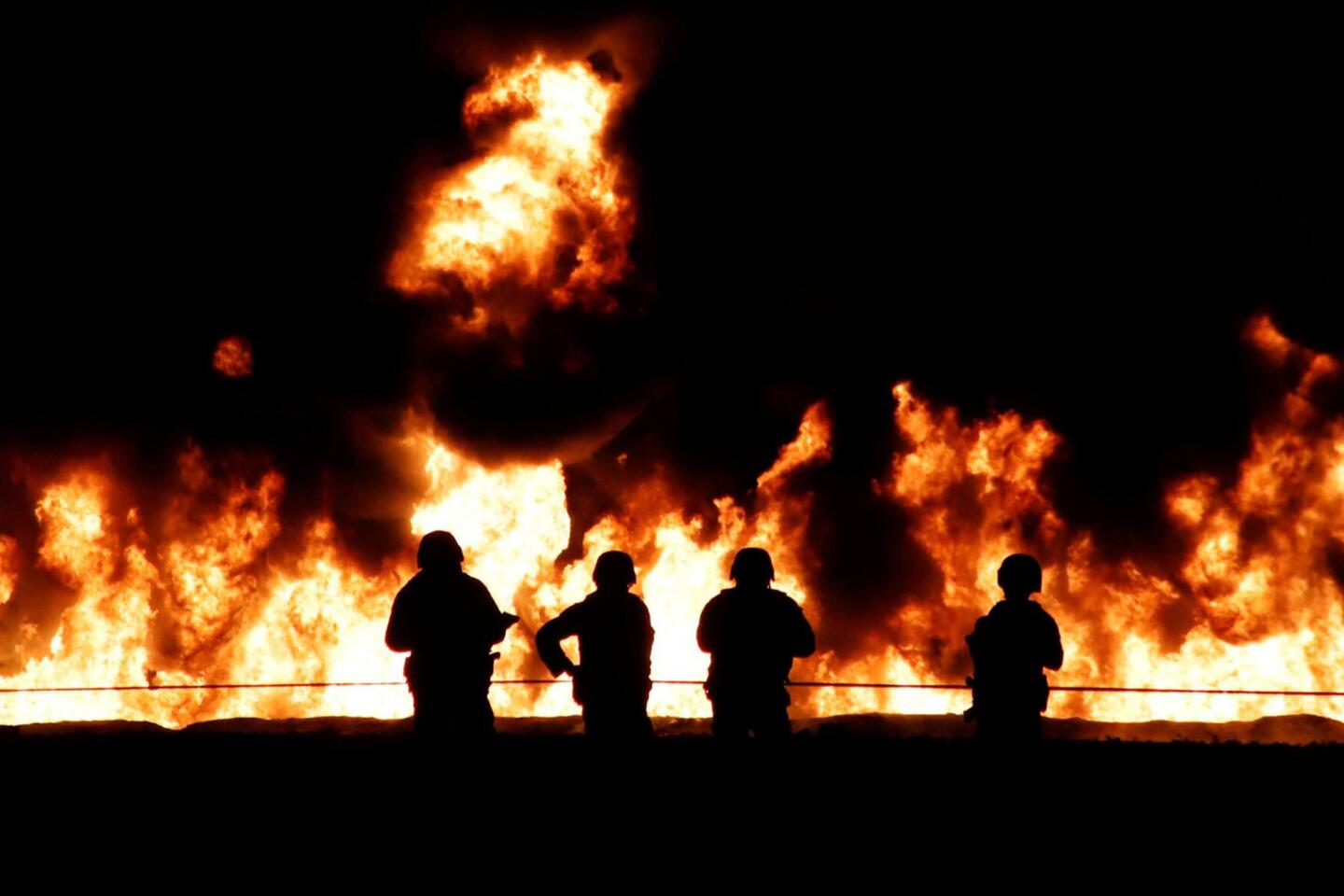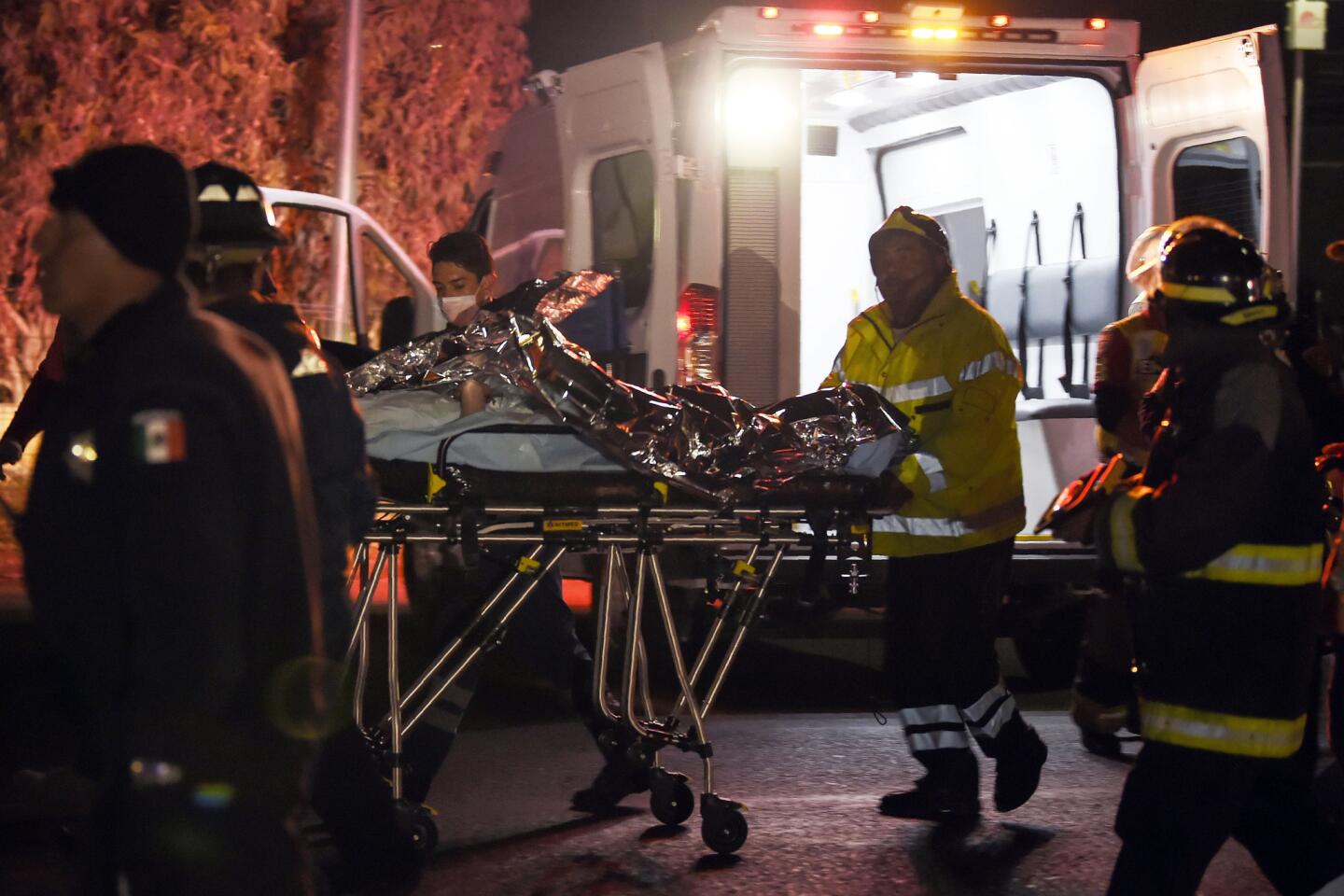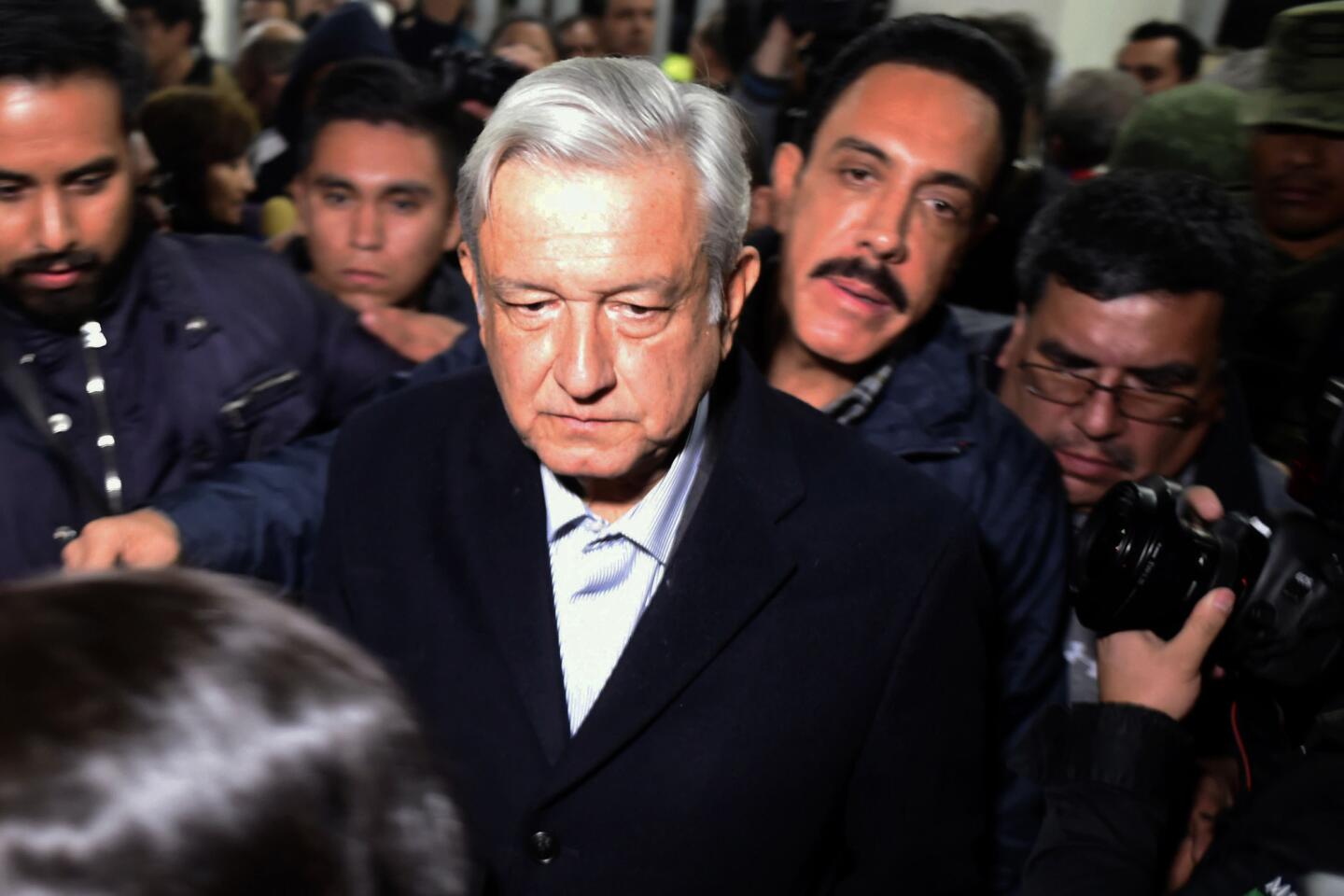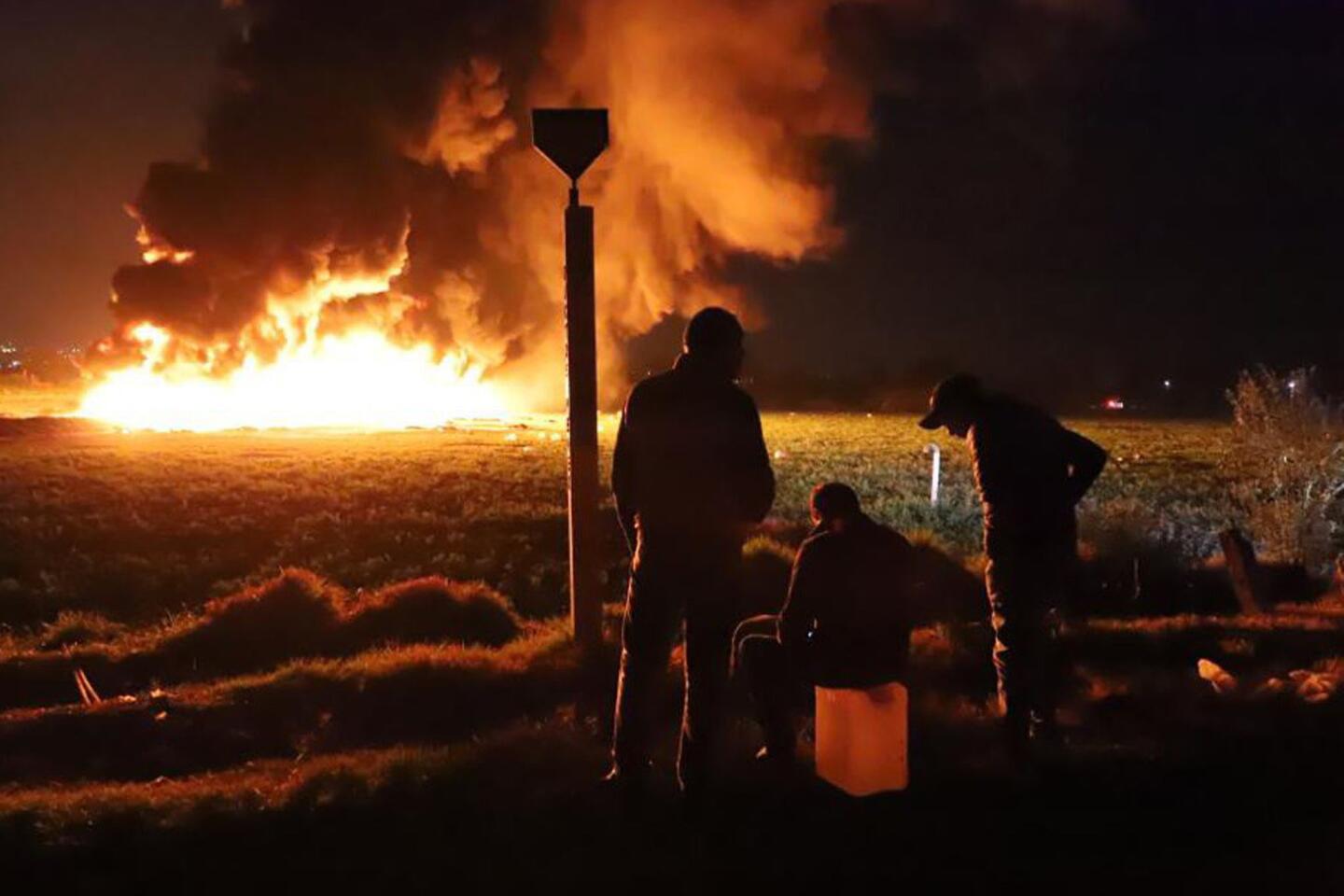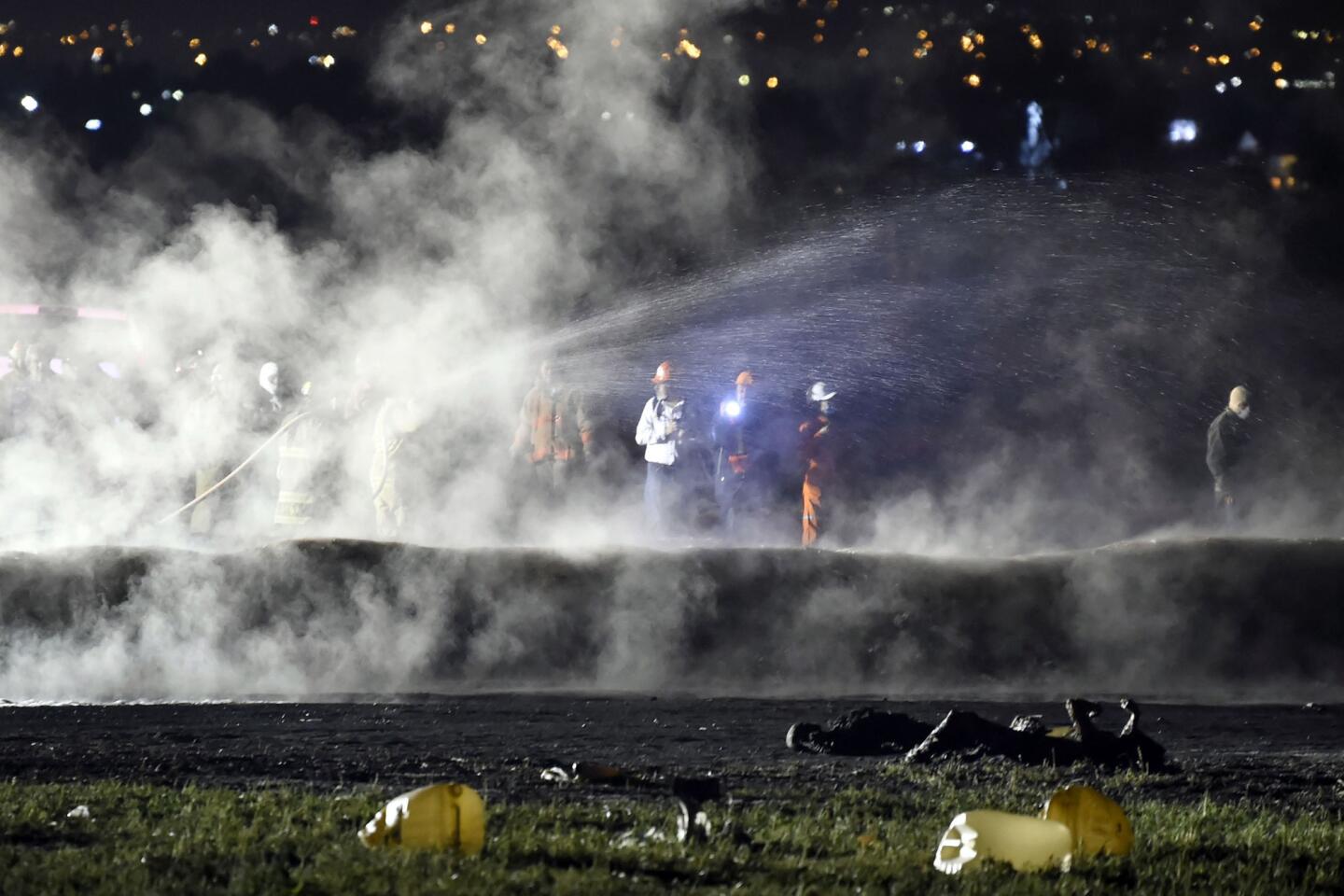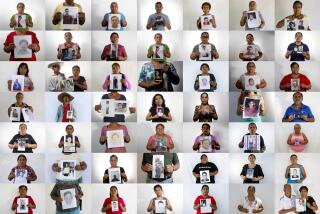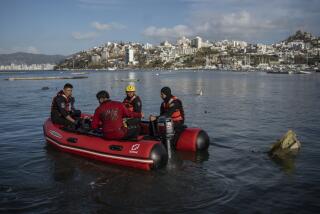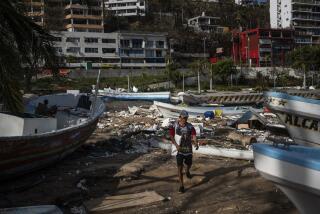Mexico struggles to identify the victims of a gas pipeline explosion that killed at least 85
Diego Pena Linares arrived at a cultural center here Sunday to post a picture of his 21-year-old brother Cesar on a list of “disappeared” — those still missing two days after a gas pipeline explosion that killed at least 85 people.
“I can’t find my brother in the hospital or anyplace else,” said a distraught Pena outside the center, which has become an information hub for relatives of blast victims in this sunbaked agricultural town about 50 miles north of Mexico City.
Most of the dead had not been identified, and local authorities were at a loss to explain where victims had been taken. In their search for answers, desperate families bounced from hospitals to funeral homes, police stations to morgues.
Success seemed to come down to luck or persistence. Pena and his mother visited hospitals in Mexico City — two hours by public bus from their home here in rural Hidalgo state — until they found another brother, 20-year-old Oscar, unconscious and in critical condition with burns over 80% of his body.
“No one gives us information,” said Pena, 19. “No one helps us.”
He said both brothers were among the hundreds of people gathered in an alfalfa field late Friday to collect gasoline from a pipeline that had been illegally tapped — a common practice in rural Mexico — when the explosion sent a geyser of fire 20 feet into the air.
The government of President Andres Manuel Lopez Obrador, who took office last month, has said that all is being done for the victims and their families.
Those officially listed as missing number 71 and range in age from 13 to 58, according to a list posted at the cultural center. Many, if not most, are probably among the dead.
Omar Fayad, governor of Hidalgo state, told reporters Sunday that the deteriorated state of most of the bodies means it could take weeks or months to identify many victims.
Local hospitals aren’t equipped to deal with severe burn cases, and many families here don’t have cars to travel to Mexico City, where many injured are being treated.
Those with vehicles face another obstacle: fuel shortages stemming from an effort launched this month by Lopez Obrador to stop rampant fuel theft by temporarily shutting off certain pipelines and moving more gasoline by trucks.
Some began their searches in the scorched field, looking for clothing or other belongings left behind as people dropped their gas canisters, tore off their burning clothes and ran.
“It has been a calvary for all of us to look for our relatives — and find nothing,” said Alfredo Vargas, 52, who was seeking any trace of his nephew, Eder Martinez, 32. “We already went to the place of the explosion, to the hospitals, to the morgue and nothing. We don’t know anything.”
One of his stops was El Angel funeral home in the nearby town of Tula. Situated next to a gas station and across the street from a window repair shop on a busy road, it appears to be the principal site where Mexican authorities have taken bodies.
As of Sunday evening, the funeral home had received 68 bodies from the explosion, but only seven had been identified, said Israel Hernandez, the manager.
“Identification in these cases is very, very difficult,” said Hernandez, standing behind a desk in a showroom lined with shiny new caskets. “Almost all of these people are completely burned. Face-to-face identification is impossible.”
The funeral home staff has been taking cellphone photographs of personal items found on the charred corpses and showing them to families of the missing. Belt buckles, medals, a bra, a pipe — anything that might help a relative make an identification.
Tattoos were also potentially helpful. But it quickly became clear how little the funeral home staff had to go on.
“Is anyone missing someone with crooked teeth?” one employee wearing blue plastic gloves asked families waiting on the sidewalk.
Many seemed bewildered by the question but continued to linger in a vague hope that they may learn anything.
“I spent the night in the funeral home waiting for any word on my brother, but they didn’t tell us anything,” said Angeles Garcia, 22, whose brother, Mario, 28, was missing. “We go from one place to another and nothing gets resolved.… I don’t think they [authorities] understand the pain that has overtaken us, the desperation to know about our families.”
Meanwhile, Mexican authorities began the process of DNA identification, asking kin to provide samples that could be matched to the victims.
Relatives of the missing are required to travel to a prosecutor’s office eight miles away in the town of Mixquiahuala to provide four “complete body” color photographs of the vanished person, in digital format, and the ID of the person’s mother — and later return to give a genetic sample.
“This whole situation has been very painful,” said Ernesto Antonio Olguin, 25, a city worker in Tula who was hoping to jump on a shuttle being arranged to Mexico City to see his uncle, a blast victim who is hospitalized there.
Another uncle is missing. Both went to the pipeline to get free gasoline, which Olguin said the pair needed for their vehicles to get to work.
“My uncles needed gasoline for themselves, not to resell it, or for some evil purpose,” he said. “Unfortunately, they were both there at the moment of the explosion.”
On Sunday, hundreds of townsfolk gathered at the local cemetery for the funerals of the first three victims to be buried.
One of those victims was Cesar Jimenez Brito, a 42-year-old father of three who owned an auto repair shop. He went by the nickname El Zorro — the Fox — and was well-known for offering credit to customers.
Huge wreaths flanked the coffins and a local band provided mostly upbeat tunes.
“Play ‘La Vida No Vale Nada’!” shouted one mourner, requesting an old Mexican standard, “Life Is Worth Nothing.”
Another mourner, Hilda Beltran, 57, made a plea not to call the victims huachicoleros, as gasoline thieves are known here.
“Everyone here had a relative or acquaintance lost in this tragedy,” she said. “Please don’t judge them…. They were people with families, who leave children, spouses. The whole town is in mourning.”
McDonnell is a Times staff writer and Sanchez a special correspondent. Special correspondent Liliana Nieto del Rio contributed to this report.
Twitter: @PmcdonnellLAT
More to Read
Start your day right
Sign up for Essential California for news, features and recommendations from the L.A. Times and beyond in your inbox six days a week.
You may occasionally receive promotional content from the Los Angeles Times.
